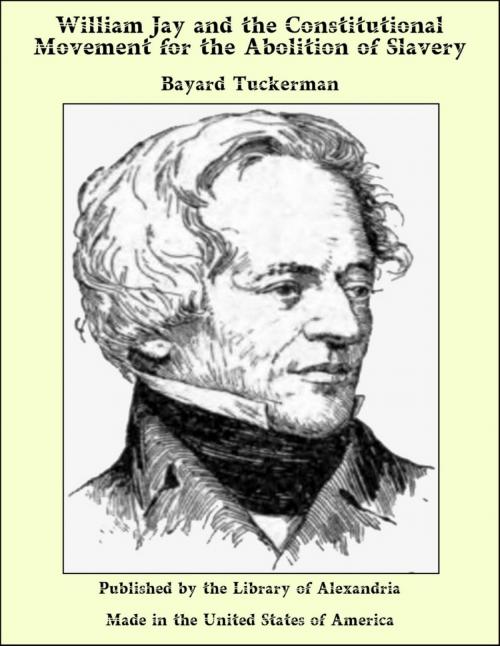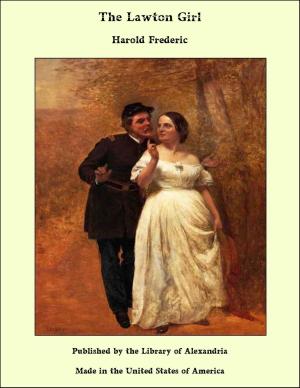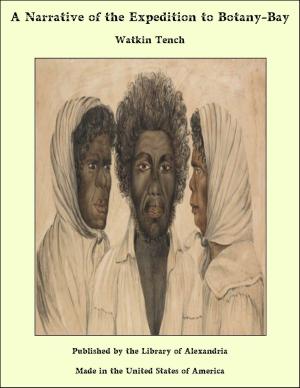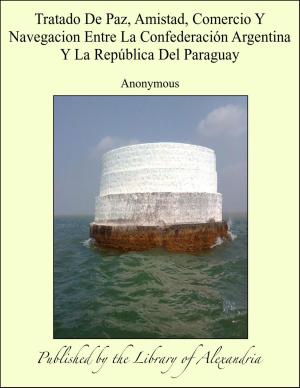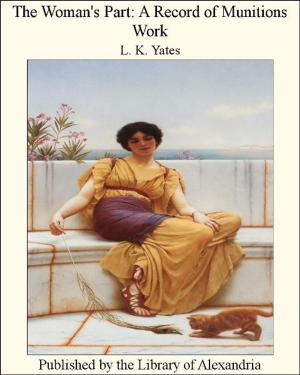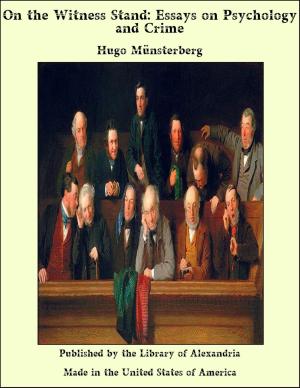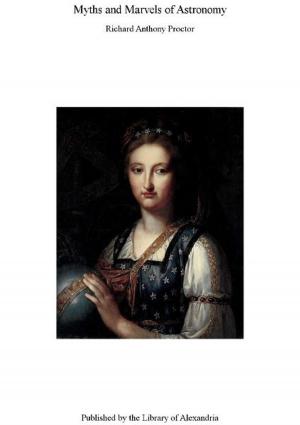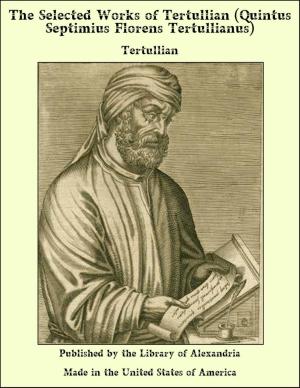William Jay and the Constitutional Movement for the Abolition of Slavery
Nonfiction, Religion & Spirituality, New Age, History, Fiction & Literature| Author: | Bayard Tuckerman | ISBN: | 9781465591968 |
| Publisher: | Library of Alexandria | Publication: | March 8, 2015 |
| Imprint: | Language: | English |
| Author: | Bayard Tuckerman |
| ISBN: | 9781465591968 |
| Publisher: | Library of Alexandria |
| Publication: | March 8, 2015 |
| Imprint: | |
| Language: | English |
A prolonged illness, added to other causes, has disappointed my hope of completing an elaborate biography of my father. This memoir by Mr. Tuckerman is devoted chiefly to the part borne by Judge Jay in the antislavery work, to which his time and thoughts were so long given. In this connection the memoir develops his personal characteristics, with the constitutional principles and national policy advocated by him in that historic contest; while of necessity it touches but lightly on his home life, his varied correspondence, and his judicial charges, one of which assisted to avert the passage of a pro-slavery legislative act infringing the liberty of speech and of the press; and the scope of the volume forbids its dwelling on his writings on other topics, some of which are still subjects of discussion. Judge Jay's memoir on the formation of a National Bible Society, which in 1816 so warmly encouraged the hopes of the venerable Boudinot, was followed by spirited controversial pamphlets with an antagonist as able and eminent as Bishop Hobart. The correspondence after Jay's first letter was marked by an unusual sharpness, which happily did not prevent my cherished and lamented friend, the son and namesake of the Bishop, from becoming in later years sincerely attached to his father's antagonist. It was a contest in which Jay vindicated the right of Churchmen to assist in the distribution of the Bible, and anticipated in this his similar efforts for a lifetime to secure the united action of all good citizens, without regard to creed or politics, in practicable schemes for the elevation and happiness of mankind. Among his earlier essays were two on "Sunday: Its Value as a Civil Institution, and Its Sacred Character"; while a third, upon "Duelling as a Relic of Barbarism," was honoured, when the authorship was still unknown, by a medal from an anti-duelling association at Savannah. Judge Jay, in the life of his father, which was welcomed as an important addition to our American biography of the Revolution, vindicated, by a careful presentation of the historical evidence then available, the soundness of the judgment of Jay and Adams, as peace commissioners at Paris in 1782-83, regarding the policy of the French court as unfriendly to the American claims to the boundaries, the fisheries, and the Mississippi. That judgment, afterwards acquiesced in by Dr. Franklin in the joint violation by the commissioners of the instructions of Congress—a violation that enabled them to obtain from England boundaries and concessions far greater than either Congress or France expected—had been roughly criticised and denied, even in volumes of diplomatic correspondence claiming an official sanction. Its vindication by Judge Jay has recently been more than confirmed by the ample proofs published by M. de Circourt in the secret correspondence of the Count de Vergennes with his able corps of diplomatic agents, as well as by the interesting revelations in Lord Edmond Fitzmaurice's "Life of Lord Shelburne"; and these volumes have dissipated a cloud of error which for half a century travestied the facts and dimmed the glory of the closing act of the American Revolution.
A prolonged illness, added to other causes, has disappointed my hope of completing an elaborate biography of my father. This memoir by Mr. Tuckerman is devoted chiefly to the part borne by Judge Jay in the antislavery work, to which his time and thoughts were so long given. In this connection the memoir develops his personal characteristics, with the constitutional principles and national policy advocated by him in that historic contest; while of necessity it touches but lightly on his home life, his varied correspondence, and his judicial charges, one of which assisted to avert the passage of a pro-slavery legislative act infringing the liberty of speech and of the press; and the scope of the volume forbids its dwelling on his writings on other topics, some of which are still subjects of discussion. Judge Jay's memoir on the formation of a National Bible Society, which in 1816 so warmly encouraged the hopes of the venerable Boudinot, was followed by spirited controversial pamphlets with an antagonist as able and eminent as Bishop Hobart. The correspondence after Jay's first letter was marked by an unusual sharpness, which happily did not prevent my cherished and lamented friend, the son and namesake of the Bishop, from becoming in later years sincerely attached to his father's antagonist. It was a contest in which Jay vindicated the right of Churchmen to assist in the distribution of the Bible, and anticipated in this his similar efforts for a lifetime to secure the united action of all good citizens, without regard to creed or politics, in practicable schemes for the elevation and happiness of mankind. Among his earlier essays were two on "Sunday: Its Value as a Civil Institution, and Its Sacred Character"; while a third, upon "Duelling as a Relic of Barbarism," was honoured, when the authorship was still unknown, by a medal from an anti-duelling association at Savannah. Judge Jay, in the life of his father, which was welcomed as an important addition to our American biography of the Revolution, vindicated, by a careful presentation of the historical evidence then available, the soundness of the judgment of Jay and Adams, as peace commissioners at Paris in 1782-83, regarding the policy of the French court as unfriendly to the American claims to the boundaries, the fisheries, and the Mississippi. That judgment, afterwards acquiesced in by Dr. Franklin in the joint violation by the commissioners of the instructions of Congress—a violation that enabled them to obtain from England boundaries and concessions far greater than either Congress or France expected—had been roughly criticised and denied, even in volumes of diplomatic correspondence claiming an official sanction. Its vindication by Judge Jay has recently been more than confirmed by the ample proofs published by M. de Circourt in the secret correspondence of the Count de Vergennes with his able corps of diplomatic agents, as well as by the interesting revelations in Lord Edmond Fitzmaurice's "Life of Lord Shelburne"; and these volumes have dissipated a cloud of error which for half a century travestied the facts and dimmed the glory of the closing act of the American Revolution.
